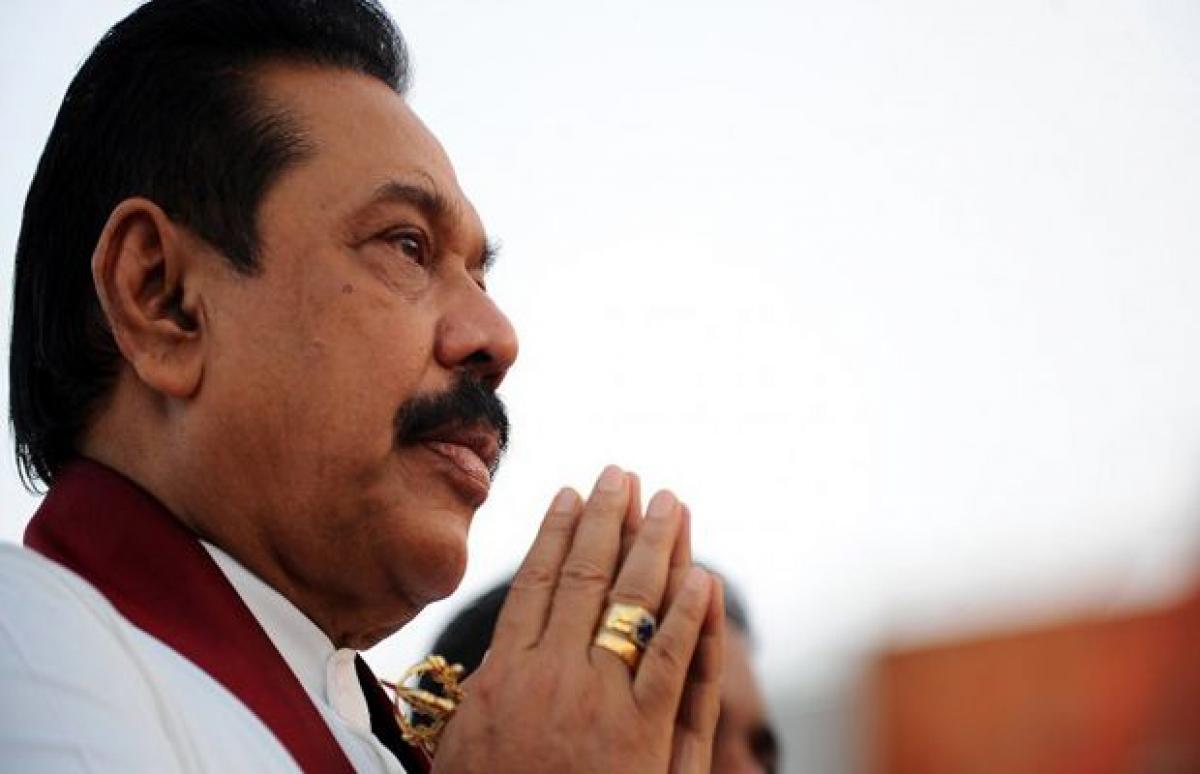Live
- Dev Deepawali 2024: Significance, Rituals, and How to Celebrate with Lamps
- Air quality in Kolkata dips to ‘very unhealthy’ category
- Air pollution may raise risk of lung cancer, asthma in children, say experts
- Yashoda Medicity organizes “Crown of Courage” ceremony to honor Cancer Survivors
- NCB, Gujarat ATS seize 500 Kg of drugs in joint op in Porbandar
- Senior citizens of all states to get 25pc bus fare concession in Andhra
- India’s total exports likely to surpass $800 billion in coming months: Industry
- Almost half of injury-related hospitalisations in Australia caused by falls: Report
- Tribals ignored by past regimes, remain top priority in NDA govt: PM Modi in Jamui
- South Korea: Opposition leader sentenced to suspended prison term for violating election law
Just In

x
Highlights
Sri Lanka goes to the polls Monday with former strongman Mahinda Rajapaksa desperate to pull off a shock political comeback, this time as prime minister, months after being toppled as president.
Sri Lanka goes to the polls Monday with former strongman Mahinda Rajapaksa desperate to pull off a shock political comeback, this time as prime minister, months after being toppled as president.

Just over 15 million Sri Lankans are eligible to vote when polling stations open across the Indian Ocean island at 7:00 am (0130 GMT) for the general election.
Rajapaksa is confident of returning to power after drawing massive crowds on the election trail, despite the 69-year-old and his closest relatives facing corruption allegations.
"This election is about whether you want Mahinda Rajapaksa as prime minister or not," his spokesman, Rohan Valivita, told AFP.
"He is 100 percent confident of victory" at the poll for the 225-seat national parliament.
His successor as president, Maithripala Sirisena, has vowed to thwart his one-time mentor's ambitions to become prime minister.
But even Rajapaksa's opponents agree the election has turned into a referendum on the charismatic leader who ruled Sri Lanka for nearly a decade till his surprise defeat at a presidential poll in January.
The two men had been allies in their ruling United People's Freedom Alliance (UPFA) until late last year when Sirisena quit as health minister to run for the presidency.
Although there are no reliable opinion polls, no single party is expected to win a majority.
Observers say Rajapaksa's polarising personality will undermine his chances of forming a coalition, especially as any potential prime minister would likely need the backing of minority groups.
Rajapaksa is hugely popular among big sections of the ethnic majority Sinhalese community for presiding over the crushing defeat of Tamil guerrillas in 2009 after their 37-year campaign for a separate homeland.
But he is also reviled by many minority Tamils who voted en masse for Sirisena in January after boycotting previous elections.
Although Sirisena is now UPFA leader, his reluctant agreement to Rajapaksa's candidacy highlighted his shaky hold on the party.
Sirisena is thought to prefer outgoing premier Ranil Wickremesinghe's United National Party (UNP) to form the next government with backing from Tamil and Muslim parties.
"People don't want Rajapaksa to come back," Wickremesinghe said at his final press conference before the vote. Rajapaksa's return is "an attempt to resurrect the politically dead," he said.
Corruption probe
Since his defeat in January, Rajapaksa has seen his wife and two of his brothers accused of corruption, while one of his sons has been implicated in the alleged murder of a former rugby star.
Sirisena last week dashed Rajapaksa's hopes of a comeback by vowing not to appoint him as premier even if their party won - and will instead choose one of seven others running for the post.
"If Rajapaksa does very well at the election, Sirisena will have no choice but to make Rajapaksa his prime minister," political analyst Kusal Perera said. "However, I don't think the question will arise."
"I think Rajapaksa's comeback effort will leave him as the leader of the opposition at the most."
Some 63,000 police have been deployed in stepped up security for the election, the results of which are expected to be released Tuesday.
Rajapaksa was shunned by Western governments over the brutal end to the island's ethnic conflict which prompted calls for international investigators to carry out a war crimes probe.
The UN says that some 40,000 Tamil civilians were killed in the final stages of the war, one of the bloodiest in Asia in the post-colonial era.
Rajapaksa's campaign speeches have been peppered with claims that Sirisena is "selling out" to Tamils and Muslims who together account for a quarter of the population.

Next Story
More Stories
ADVERTISEMENT
© 2024 Hyderabad Media House Limited/The Hans India. All rights reserved. Powered by hocalwire.com







